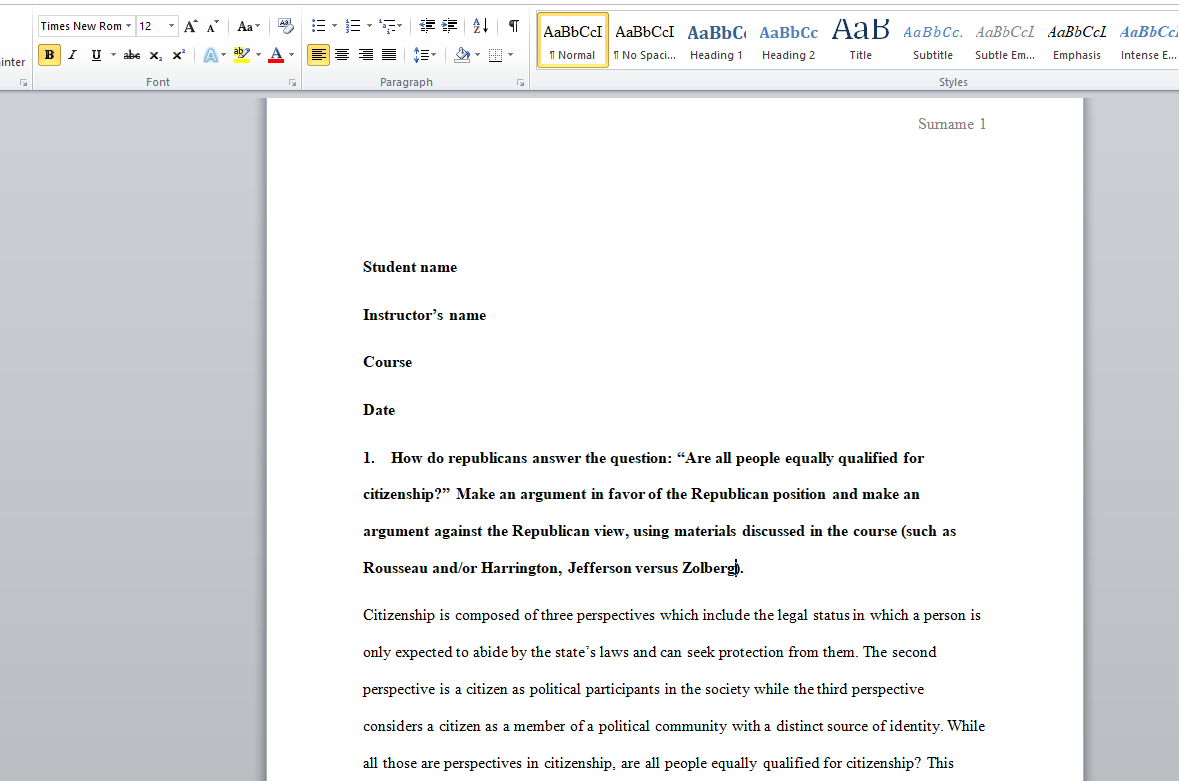How do republicans answer the question: “Are all people equally qualified for citizenship?”
Answer the questions I posted, two pages to answer each question and use only the readings that i uploaded as your sources please. you can also use quotations to support your arguments.
1. How do republicans answer the question: “Are all people equally qualified for citizenship?” Make an argument in favor of the republican position and make an argument against the republican view, using materials discussed in the course (such as Rousseau and/or Harrington, Jefferson versus Zolberg).
2. Ancient Athens was a pure democracy in which the people governed themselves. While the American Founders believed in democracy, they (specifically Madison) were critical of that Athenian form of government. Compare Madison’s criticisms with Athenian practice. Are his criticisms on target? How would Athenians respond to his criticisms?
3. What are useful measures for controlling the power of the executive, whether king or president, in popular government? Lay out relevant measures discussed by Machiavelli, Madison, and Sunstein. Assess these measures for their relevance to the twenty-first century U.S. Which measures are outdated? Which measures, if any, are likely to work today in containing presidential power?
4. What organizational combination of (1) rights and (2) equality would produce the best society in your view? Specifically, would it be better to have negative rights (Mill) or positive rights (UN Declaration of the Human Rights)? Would it be better to have equality of opportunity (Friedman) or relative equality of outcomes (Rousseau)? Defend the combination you choose as producing the best society. [Stipulation: you must choose between negative and positive rights and choose between equality of opportunity and relative equality of outcomes.
Answer preview:

Words:2,581
